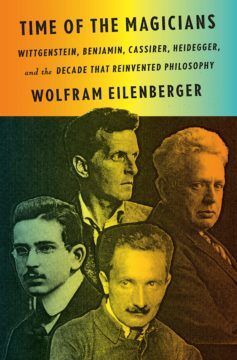Costica Bradatan in the Los Angeles Review of Books:
 “AND WHAT ABOUT unbiased research? What about pure knowledge?” bursts out the more idealistic of the two debaters. Before the other, the more cynical one, even has a chance to answer, the idealist ambushes him with even grander questions: “What about the truth, my dear sir, which is so intimately bound up with freedom, and its martyrs?” We can picture the caustic smile on the cynic’s face. “My good friend,” the cynic answers, “there is no such thing as pure knowledge.” His words come out calmly, fully formed, in sharp contrast to the idealist’s passionate, if sometimes logically disjointed pronouncements. The cynic’s rebuttal is merciless:
“AND WHAT ABOUT unbiased research? What about pure knowledge?” bursts out the more idealistic of the two debaters. Before the other, the more cynical one, even has a chance to answer, the idealist ambushes him with even grander questions: “What about the truth, my dear sir, which is so intimately bound up with freedom, and its martyrs?” We can picture the caustic smile on the cynic’s face. “My good friend,” the cynic answers, “there is no such thing as pure knowledge.” His words come out calmly, fully formed, in sharp contrast to the idealist’s passionate, if sometimes logically disjointed pronouncements. The cynic’s rebuttal is merciless:
Faith is the vehicle of understanding, the intellect is secondary. Your unbiased science is a myth. Faith, a world view, an idea — in short, the will — is always present, and it is then reason’s task to examine and prove it. In the end we always come down to “quod erat demonstrandum.” The very notion of proof contains, psychologically speaking, a strong voluntaristic element.
To the idealist, brought up in the grand tradition of the European Enlightenment, this looks like a mockery of all he stands for. He can’t take the cynic’s reasoning other than as a tasteless joke.
More here.
